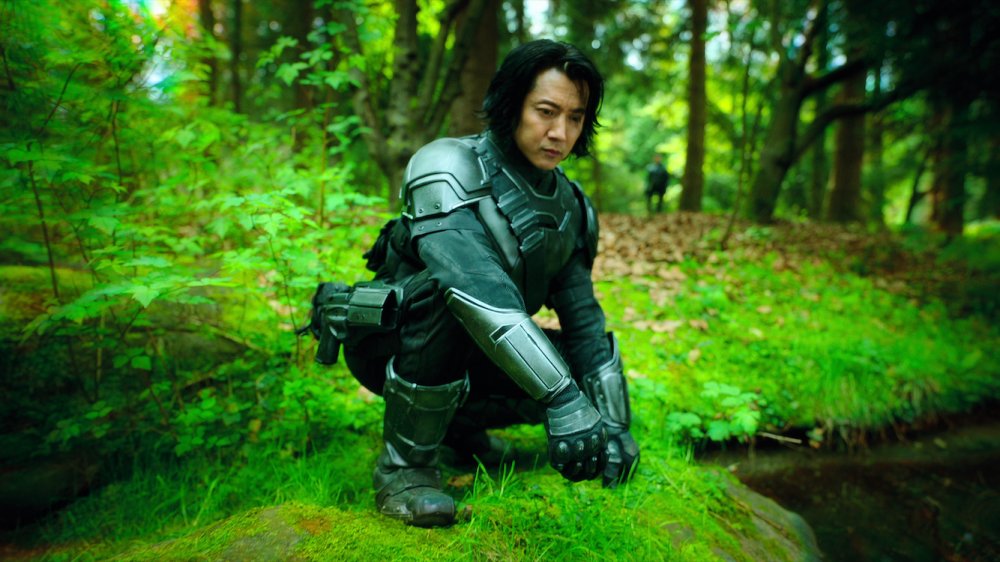The Altered Carbon Question That Keeps Fans Up At Night
After two engrossing seasons, Altered Carbon left fans wanting more — not because of a lack of plot, but because the short-lived drama left fans with a desire to know more about this dystopian world and the technology that makes it seem so alien. Case in point: A Reddit user posting under the handle u/rgosskk84 brought up a valid lingering question about the world of Altered Carbon: Do characters technically die when they're resleeved or needlecast?
After all, Takeshi Kovacs, who's portrayed by multiple actors, is no stranger to resleeving, needlecasting, and being in two different bodies at the same time. This question provides ample fodder for fan theorizing because the show never addresses it directly. That's one of the blessings and curses of a show like Altered Carbon. Ambiguity is as necessary to maintain dramatic tension as it is infuriating after a show gets canceled. We can try to extrapolate from what we know about the real world, but the truth remains that Altered Carbon takes place in a different world than ours and may be governed by different rules, laws, and philosophical principles as a result.
Healthy stacks technically allow Altered Carbon characters to live forever
A cortical stack is a copy of a person's consciousness, and one can't die in a traditional sense unless his or her stack is permanently damaged or destroyed. Kovacs is nearly 300 years old, although the audience sees him weaving in and out of different sleeves (bodies) throughout the show's two-season run. Stacks can be inserted into other sleeves and somewhat changed by the properties of the sleeve the stack is occupying. That's why Kovacs, who doesn't smoke, was seen smoking when his stack was inserted into the Elias Ryker sleeve as that sleeve/person has an addiction.
What makes this even more complicated is when two Kovacs characters are present. Double sleeving is possible because a person's consciousness is digitized and can be copied to a stack and placed into, at the least, two different sleeves. This, of course, muddies the clone waters as one person can't be in two different places at the same time, yet in the Altered Carbon universe, Kovacs can roam freely in two different sleeves with each sleeve making its own decisions based on the backed-up data.
With that said, stacks are a copy. A stack harbors the memories of a person and, in theory, everything about that person. Without a stack presently in a sleeve, new memories can't be created, almost as if a person is frozen in time.
How you view stacks and resleeving is more a religious question than a scientific one
The definition of alive and dead comes into question here, as does each individual's personal beliefs. On one hand, stacks are essentially digitized clones with cloned memories. Unlike with genetic cloning, everything — memories, personality, knowledge, etc. — is transferred each time a person resleeves, although resleeving into too many different bodies can cause a person to go insane. It's certainly rational to think of each resleeving as a "death," though that designation may be semantic once technology advances to a certain point.
Unfortunately, we may never get any solid answers here. Altered Carbon season 3 is unlikely at this point, so what we currently know about stacks is quite possibly as much as we'll ever know — unless of course you want to crack open Richard K. Morgan's series of cyberpunk novels that inspired the show. Plus, stacks are so much more complicated than anything extant in real life that investigating the makeup of a stack alone can cause a person to go down a real philosophical rabbit hole. The audience is supposed to just accept the fact that a character can never die as long as his or her stack remains intact. That's the world Altered Carbon created and the rules it lives by. Alas, Altered Carbon mortality will always be up for debate alongside other all-time TV questions — like Tony Soprano's fate at the conclusion of The Sopranos.


